D’Souza, M. O. (2016). A Catholic philosophy of education: The church and two philosophers. Montreal: McGill-Queens University Press.
 This book discusses Catholic education in the light of documents from the Church’s Congregation for Catholic Education (CCE) and the writings of Jacques Maritain and Bernard Lonergan. It is rather heavy reading, but very insightful and relevant, especially for Praxis participants. Continue reading “The Church and Two Philosophers”
This book discusses Catholic education in the light of documents from the Church’s Congregation for Catholic Education (CCE) and the writings of Jacques Maritain and Bernard Lonergan. It is rather heavy reading, but very insightful and relevant, especially for Praxis participants. Continue reading “The Church and Two Philosophers”
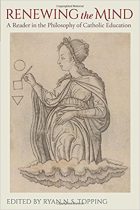 This is a compendium of writings on education ranging from the classical (including Plato, Aristotle, Augustine and Aquinas) to the recent, primarily (although not exclusively) from a Catholic perspective. The nearly 40 entries can be read as a continuum or as selections. Topping provides a brief introduction, further reading and study questions for each selection, which make this very useful as a teaching text.
This is a compendium of writings on education ranging from the classical (including Plato, Aristotle, Augustine and Aquinas) to the recent, primarily (although not exclusively) from a Catholic perspective. The nearly 40 entries can be read as a continuum or as selections. Topping provides a brief introduction, further reading and study questions for each selection, which make this very useful as a teaching text. 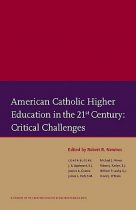 This edited volume contains papers from a 2013 symposium that discussed four critical issues in Catholic higher education: strengthening the Catholic intellectual tradition; personal and religious formation of students; the relationship of Catholic colleges to the Church; and preparing future leaders of Catholic post-secondary institutions.
This edited volume contains papers from a 2013 symposium that discussed four critical issues in Catholic higher education: strengthening the Catholic intellectual tradition; personal and religious formation of students; the relationship of Catholic colleges to the Church; and preparing future leaders of Catholic post-secondary institutions. 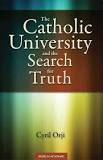 Orji asks “is there a “Catholic Intellectual Tradition” (CIT)?”, and if so, what is it? He notes people (including Catholic “intellectuals”) are confused about it. Is CIT independent of the “magisterium” (revealed truth) and the official philosophy of the Church or can it include other philosophies? Is it “too Catholic” or “not Catholic enough”?
Orji asks “is there a “Catholic Intellectual Tradition” (CIT)?”, and if so, what is it? He notes people (including Catholic “intellectuals”) are confused about it. Is CIT independent of the “magisterium” (revealed truth) and the official philosophy of the Church or can it include other philosophies? Is it “too Catholic” or “not Catholic enough”? 
 The first chapter gives a history of “American Philosophy in the 20th Century” (its “narrowing of scope” and separation of faith and reason), which is interesting, but the second chapter “Teaching Philosophy in a Catholic University according to John Paul II” is the most relevant. It is an interesting complement to the majority of authors who see theology as the central and unifying science.
The first chapter gives a history of “American Philosophy in the 20th Century” (its “narrowing of scope” and separation of faith and reason), which is interesting, but the second chapter “Teaching Philosophy in a Catholic University according to John Paul II” is the most relevant. It is an interesting complement to the majority of authors who see theology as the central and unifying science.  The opening to the preface — “this study is addressed to those who are educated enough to wonder if they are really educated” — seems directed to those of us struggling to familiarize ourselves with the Catholic intellectual tradition It is largely a positive book, seeing much good in the faculty already in place.
The opening to the preface — “this study is addressed to those who are educated enough to wonder if they are really educated” — seems directed to those of us struggling to familiarize ourselves with the Catholic intellectual tradition It is largely a positive book, seeing much good in the faculty already in place. 
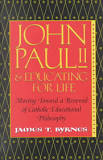
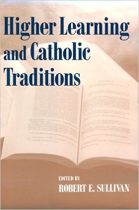 This edited volume derives from papers delivered at a 1999 conference sponsored by the Erasmus Foundation, which aims to “build bridges between the apparently disconnected worlds of Catholic thought and secular scholarship” (xi).
This edited volume derives from papers delivered at a 1999 conference sponsored by the Erasmus Foundation, which aims to “build bridges between the apparently disconnected worlds of Catholic thought and secular scholarship” (xi).